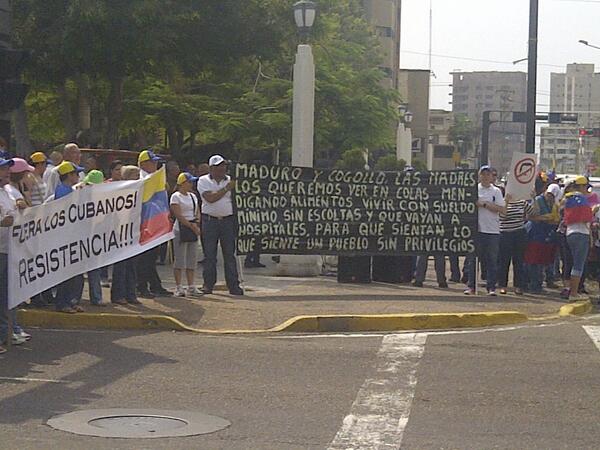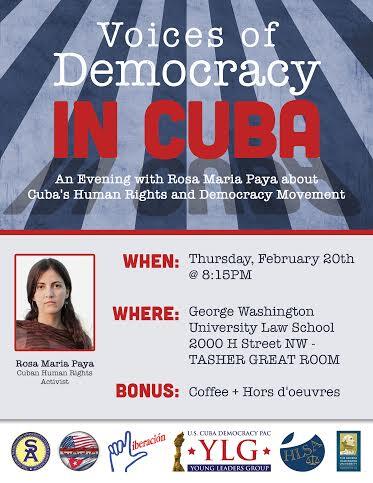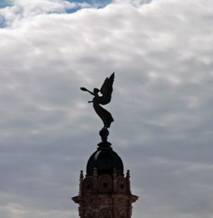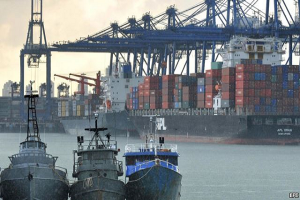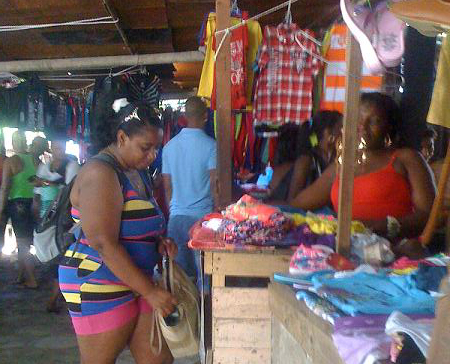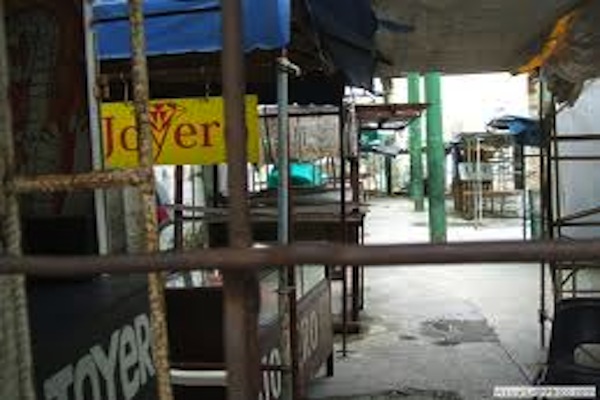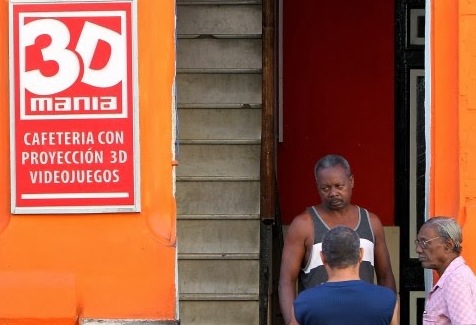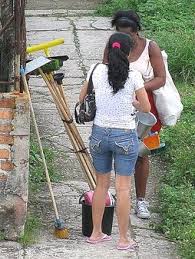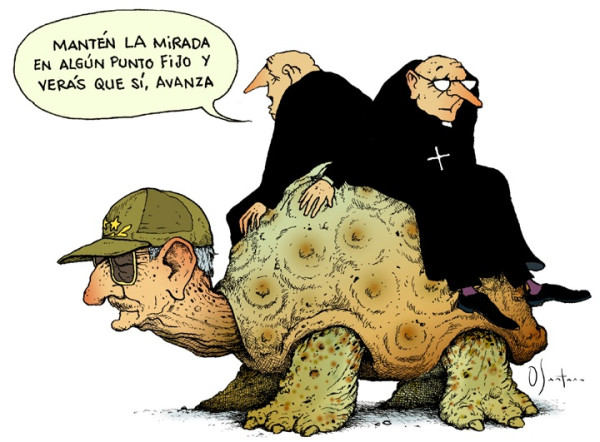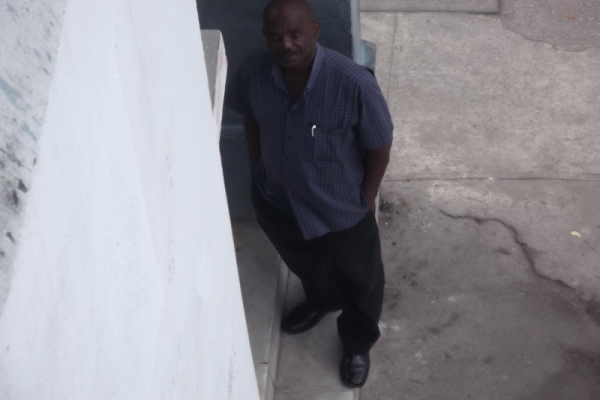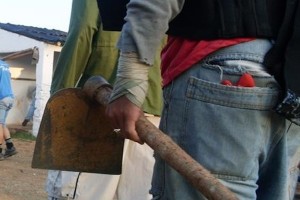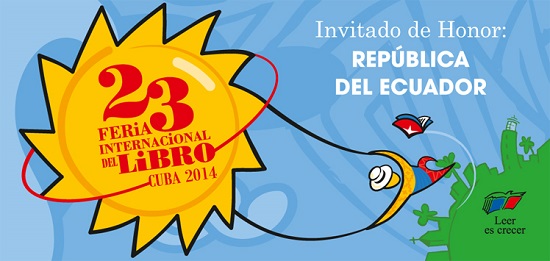 When the days are cloudy Havana Bay takes on a strange, gray tint. When viewed from the Fortress of San Carlos de la Cabaña, the city looks like a faded postcard. Yesterday morning the public opening of the International Book Fair perfectly coincided with a winter’s day. So the colorful posters announcing the titles and the authors to be honored flapped in a chill February breeze. A brisk reading many appreciated.
When the days are cloudy Havana Bay takes on a strange, gray tint. When viewed from the Fortress of San Carlos de la Cabaña, the city looks like a faded postcard. Yesterday morning the public opening of the International Book Fair perfectly coincided with a winter’s day. So the colorful posters announcing the titles and the authors to be honored flapped in a chill February breeze. A brisk reading many appreciated.
Among the main attractions of this Fair is the site itself. The esplanade of a colonial military fort and its rounded galleries gives a vintage touch to the literary event. Parents take take the opportunity to bring their children to frolic among the old cannons and the walls of stone. The gastronomic offerings, the sale of handicrafts, and other associated choices, come to play a bigger role than the books.
This twenty-third edition of the fair confirms the deteriorating trend in Cuban publishing. Although the official media announced two million copies and some 400 invited guests, the decline of our main cultural event is obvious. The reasons for this loss of brightness range from the purely commercial to the ideological. Such that the Fair, approaching its quarter century, is aging and urgently in need of a reevaluation.
A celebration of books and reading where too much is missing. The long list of what is censored for political considerations, among which are numerous Cuban exiles. Missing names like Guillermo Cabrera Infante, Reinaldo Arenas, Jesus Jesús Díaz, Daína Chaviano or Abilio Estévez. The silence also extends to writers of other nationalities like the Nobel laureate Mario Vargas Llosa. Ideology still stands as the main criterion when sending out invitations.
The limited economic capacity to acquire copyrights from living international figures still writing impoverishes our publishing. There is a marked tendency to publish the classics over and over, which clearly are must-reads, but shouldn’t constitute the only option. Many shelves in this Book Fair seem to come from the end of the 19th century and the beginning of the 20th, rather than from today.
The scarcity of contemporary titles is especially dramatic in the children’s options. Every year the youngest readers can choose only local authors, or names such as Emilio Salgari, Jules Verne and the Brothers Grimm. The greatest hits of the fantastic literature for children and teens in the last decades, have not been present on the national circuit. Harry Potter was never issued by a Cuban publisher.
A book fair should be a site to make contacts, close deals, get to know new authors who will be published later. This function of serving as a meeting point doesn’t exist at the Havana Book Fair. It lost, or never had, the character of a showcase not only for an audience that wants to buy or browse, but for entrepreneurs , directors or cultural promoters of the publishing world.
How many agreements are closed during the two weeks of the event? What is the total amount of contracts signed? The day we know the answers to those questions we will be able to see on the Fair’s heart monitor whether it’s a straight line and a beep that confirms it’s over.
Ideology also influences the selection of the guest country, whose offerings in recent years have been turned into more of a showcase for the ruling party than a literary exposition. On this occasion the announced highlight of the Fair was the presentation of the book “From Banana Republic to Non-Republic,” written by Ecuador’s president Rafael Correa. The cancellation of the South American dignitary’s trip “for work-related reasons,” was not properly announce. The Fair was already in a free fall since its opening, where off-the-cuff speeches tried to cover the absence of the missing president.
Still, the fairgrounds have been filled and will continue to be filled in the coming days. People will buy thousands of books and stand in long lines to get the most attractive titles. Because the number of visitors doesn’t reflect the quality of the fair, but rather the publishing wilderness that surrounds us the rest of the year. Parents will watch their kids play between the walls of what was once a prison and also the scene of summary executions. The Havana that presents itself from La Cabaña in this gray winter is a strange and beautiful sight.
The Un-Fair has begun.
15 February 2014, from Yoani’s “Cuba Libre” blog in El Pais newspaper

